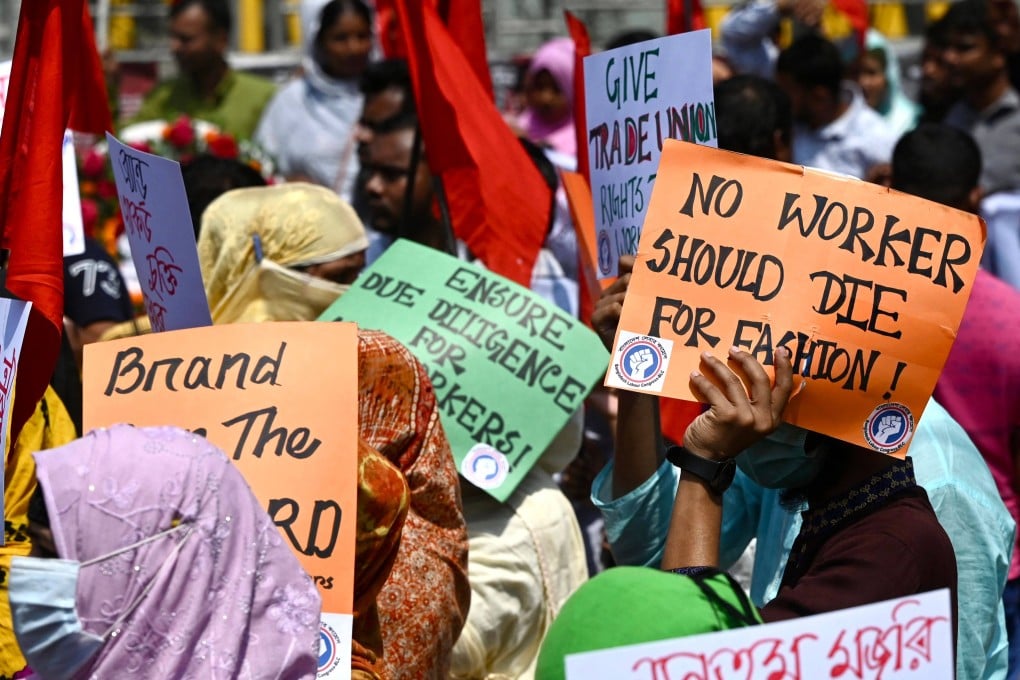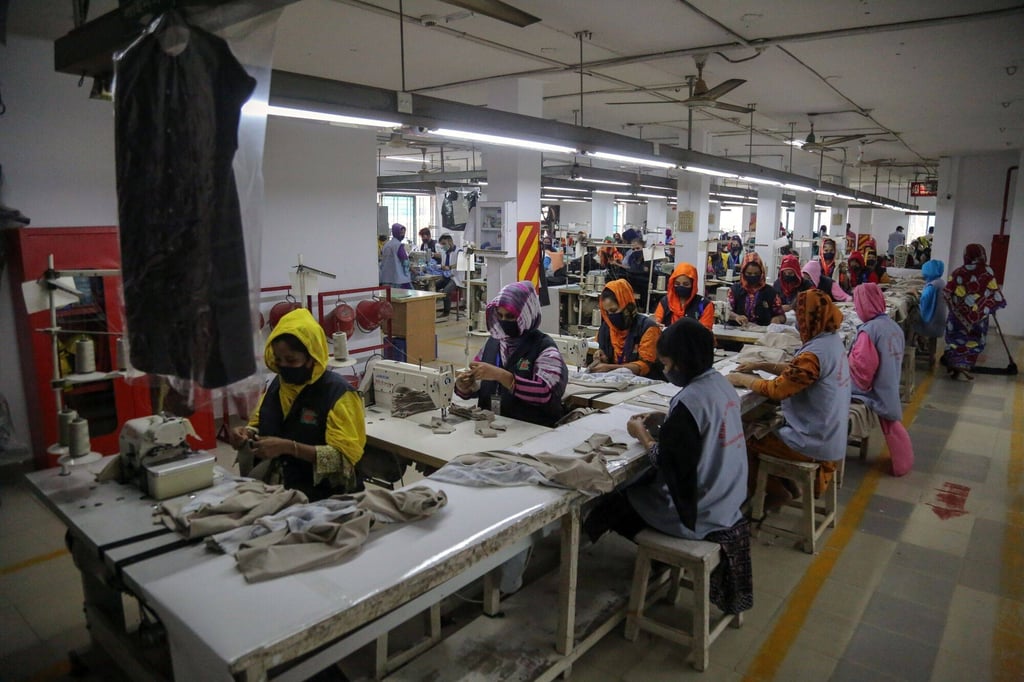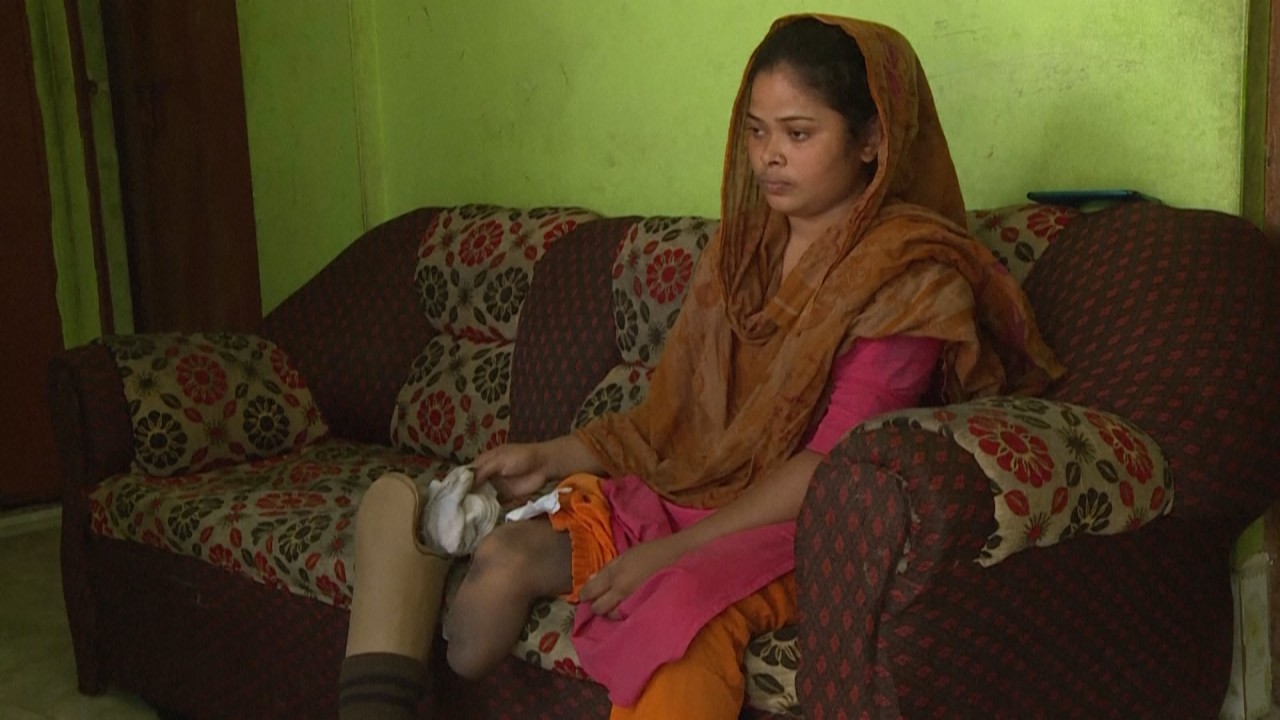A decade after Rana Plaza collapse, Bangladesh garment workers fight for better pay and conditions
- Labour advocates say safety has improved since the collapse of the Rana Plaza factory, but progress on better pay and conditions has been far slower
- Ten years ago, more than 1,100 garment workers died when an eight-storey building housing five garment factories collapsed in Dhaka, Bangladesh

Their factories are safer, but many Bangladeshis stitching clothes for big Western brands say they still face dire pay and working conditions 10 years since more than 1,100 garment workers died in the Rana Plaza collapse.
A few blocks from the site of the disaster, one of the worst-ever industrial accidents, Ripon Das earns 15,000 taka (US$141) per month for working a seven-day week as a machine operator. As his family’s sole breadwinner, it is nowhere near enough.
“I choose to work overtime without holidays to supplement my scant wages,” said Ripon, 27, whose sister had to resign from her job at the same factory after falling ill because she was not entitled to paid sick leave.

While labour advocates say safety has improved significantly in the world’s second-largest clothing exporter since the collapse of the Rana Plaza factory building, they say progress on better pay and conditions – from sick pay to insurance benefits – has been far slower.
As annual inflation running close to 10 per cent hikes living costs, union leaders representing the sector’s 4 million workers are demanding a raise in the sector’s minimum wage to 23,000 taka (US$217) from the 8,000 taka (US$75) fixed in 2018 and revised every five years.
“Earlier I could buy food items for two to three days with just 100 taka, but now I can’t afford the same items with even 500,” said Jolly Akter, 27, a union leader who works as a garment quality inspector.
A spokesperson for the government-led minimum wage board – which also includes factory owners and labour representatives – did not immediately respond to a request for comment.
